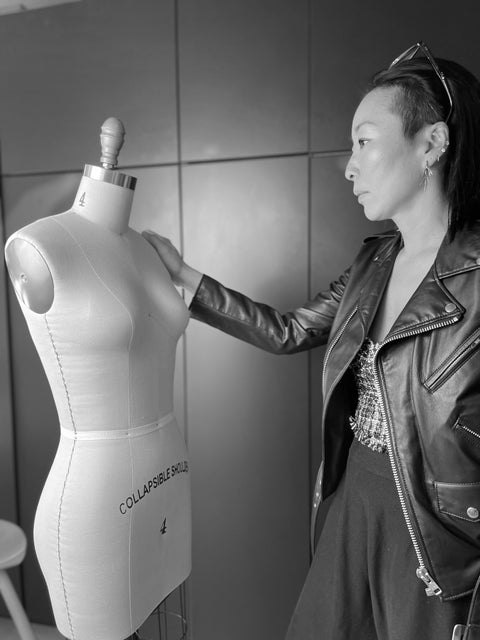
The Future of Fashion | JURI SASAKI 佐々木樹里
Fashion is Going Digital
JURI SASAKI(佐々木樹里)was born in Hong Kong in 1977 to a family of manufacturers. She grew up interning at a fashion design and manufacturing company run by her father, Ricky Sasaki. Juri first studied at Keio Academy of New York, located in Westchester, New York. She then moved to Tokyo to attend Keio University and experienced Japan for the first time. After graduating, Juri joined Link Theory Japan. The company, founded by her father, was in the midst of doubling its sales, expanding from $20 million to $40 million annual sales globally. Eventually, Link Theory Japan was listed on the Japanese stock market.
Throughout her career, Juri has enjoyed empowering women who work in the fashion industry to better their lives. With this inspiration, Juri moved back to NYC at the global THEORY headquarters which was founded by Andrew Rosen. Juri learned from one of the most visionary merchants in fashion how to build a global brand and business. Their goal was to accelerate business growth by combining best practices learned in Japan with those in the U.S.
Juri shares that the most important thing she has learned is to work with passion. She states that, while intercultural communication is not always easy, passion and constant effort from all sides can resolve conflicts and make a company stronger.
After over 20 years in merchandising, Juri wanted to pursue a career path that specifically gave back to the next generation, so she joined Yabbey, a company aiming to create an online digital fashion library that will be available to future generations to learn and source from.

IROHA: What projects are you currently working on? What have you most recently completed or plan to do in the near future?
JURI: I recently received my health coach certificate from the Institute for Integrative Nutrition (IIN). As I’ve gotten older and as a mother of two, I have grown interested in healthier eating and using nontoxic household goods. I am not currently pursuing this as a profession, but it is always good to know what is better for you! I hope to guide my children and the people I care about as we all seek out healthier living.
Outside of that, I’m excited about getting back into sewing to also help support my new passion, Yabbey!
IROHA: What are your thoughts regarding Asian hate and Asian glass ceiling issues?
JURI: I personally did not feel or experience this much, as I have always been surrounded by Asians at my work or in the area I lived. During the pandemic, it became very scary to take the subway in New York City. I think that is when I felt the Asian hate personally. As humans, we all need to learn to care about others, regardless of ethnicity, sexual orientation, or gender identity. When you see from a child’s eye, everything is equal. We lose that sight once we get older. We are all humans. We all need to treat others and be treated by others with respect. That is one of the things I try to show and teach my children.
I have learned a lot over the past few years about how others are experiencing Asian glass ceiling issues. I joined a group called “The Asian Collective,” founded by Gina Pak to support other Asian creative leaders and find collaborators in our respective pursuits.
IROHA: Based on your background, do you have any advice or a message for young people who want to follow in your footsteps?
JURI: Create a short and long-term plan from an early age. There is no right or wrong, but a path is good to have. I wish I started that much earlier. Don’t be scared to fail or make mistakes. I know everyone repeatedly tells you this when you are young, but now I look back and think that the more challenges you face when you are young, the stronger foundation you will build for yourself in the future. I think one’s twenties is a great time to gain experience.

IROHA: Outside of work, what are you most interested in right now?
JURI: Spending time with my family. Working in the fashion industry involves a lot of late nights and travel. I missed out on spending a lot of time with my older son when he was little. Now that he is older, I am enjoying sharing experiences with him and am also trying to spend time with my younger daughter – often in the park! One sort of silver lining of the pandemic is that there is now a lot more that you can do remotely, and people are not hesitant about it. It is a bit controversial, but as we become a more digital society, I do think real-life experiences become even more important!
written by Jessica Woolsey
Juri Sasaki's LinkedIn
